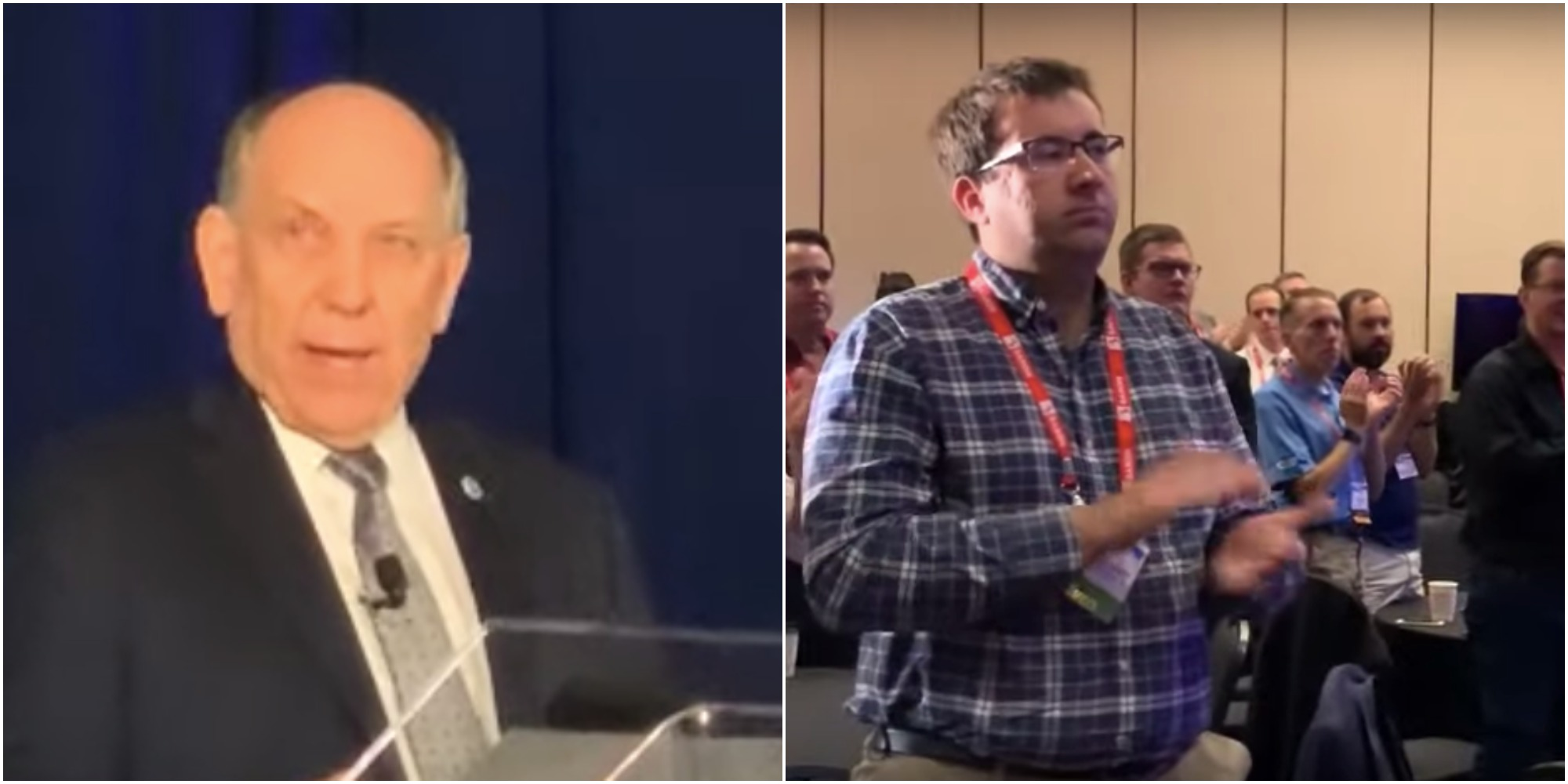- National Weather Service (NWS) Director Louis Uccellini led a standing ovation on Monday for staff who contradicted President Trump’s false claim that Hurricane Dorian was forecasted to strike Alabama.
- “They did what any office would do,” Uccellini told the National Weather Association annual conference Monday. “With an emphasis they deemed essential, they shut down what they thought were rumors.
- “They quickly acted to reassure their partners, the media and the public – with strong language – that there was no threat,” he continued.
- On September 1 the NWS’ office in Birmingham, Alabama, tweeted that Hurricane Dorian was not predicted to hit Alabama.
- About 20 minutes earlier President Trump had tweeted that Alabama was among the states that would “most likely be hit (much) harder than anticipated by the hurricane.
- Visit Insider’s homepage for more stories.
National Weather Service director Louis Uccellini led an ovation for weather forecasters in the agency’s office in Birmingham, Alabama, who corrected President Donald Trump when he falsely claimed Hurricane Dorian was set to hit Alabama.
Speaking at an annual meeting of the National Weather Association Monday, Uccellini praised the scientists for upholding “the integrity of the forecasting process.”
“They did what any office would do,” Uccellini told the convention of meteorologists. “With an emphasis they deemed essential, they shut down what they thought were rumors. They quickly acted to reassure their partners, the media and the public – with strong language – that there was no threat.”
Wow! What a powerful moment and moving show of support with a standing ovation for WFO Birmingham. Thank you @NWSDirector! #NWAS19 pic.twitter.com/PDXz0TrZOa
— Rick Smith (@ounwcm) September 9, 2019
"They did that with one thing in mind: public safety," Uccellini said.
"And they responded not knowing where this information was coming from. Only later, [when] the retweets and the politically based comments came into their office, did they learn the source of this information."
The video below shows the moment Uccellini called for conference attendees to recognize the workers' efforts, leading to a standing ovation:
http://www.youtube.com/watch?v=sLYNL3kn0Cg?start=245
Read more: A brief history of how Trump came up with the false claim that Hurricane Dorian could hit Alabama
During his speech, Uccellini said that local emergency services had praised the NWS' Birmingham office for the speed with which it corrected the rumors generated by the president's claim.
Trump refuses to back down from false claims about Hurricane Dorian

The controversy stems back to a tweet sent by President Trump on Sunday, September 1, in which he claimed that Alabama was among the states that would "most likely be hit (much) harder than anticipated" by Hurricane Dorian.
The NWS' Birmingham office about 20 minutes later corrected the claim, tweeting "Alabama will NOT see any impacts from Dorian."
Trump has refused to back down from his claim, even producing a forecasting map altered, reportedly with a black Sharpie marker, to make it appear that Alabama had been in the hurricane's path.
The fallout from the president's defence of his false claim has roiled the National Atmospheric and Oceanic Administration, the parent agency of the NWS, which is in turn a branch of the commerce department.
Uccellini's defence of his staff contrasts with the reaction of other executives at parent agencies of the NWS, who have reportedly sought to provide cover for the president.
On Friday, the NOAA had issued a statement on Friday publicly rebuking the Birmingham office over the tweet.
The New York Times then reported on Monday that Commerce Secretary Wilbur Ross threatened to fire staff over the message contradicting the president from the Alabama NWS office.
The Department of Commerce denied the truth of the report in a statement to the Times.

